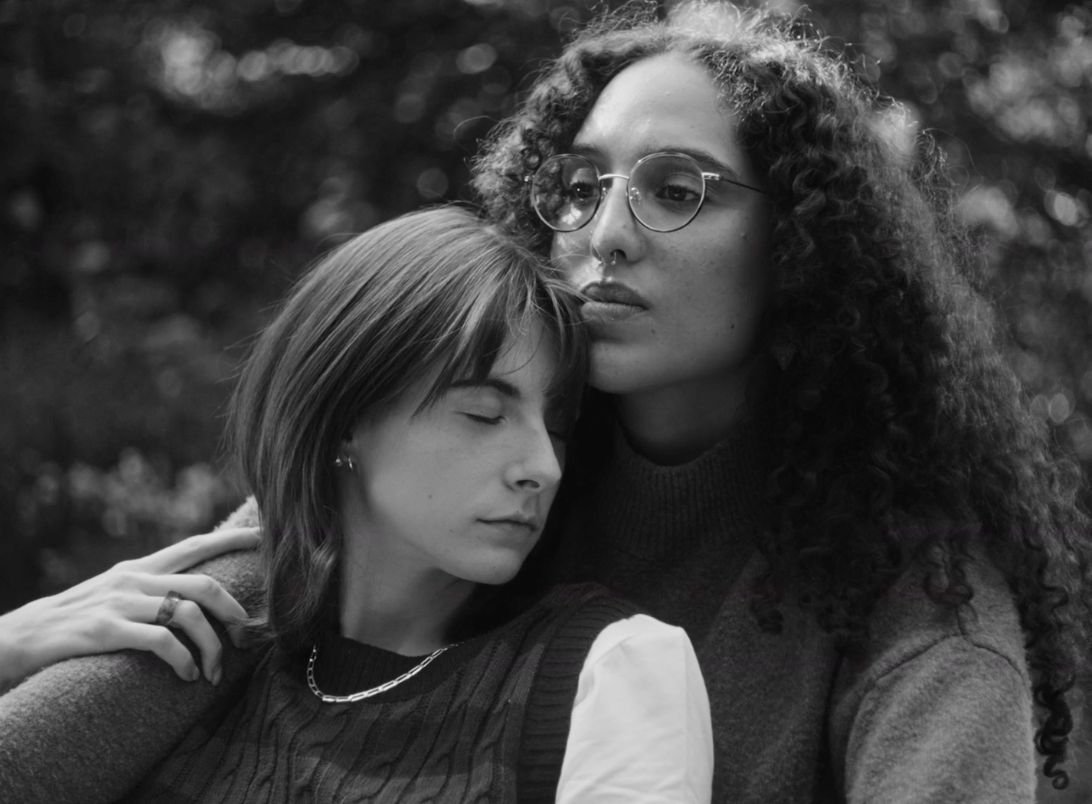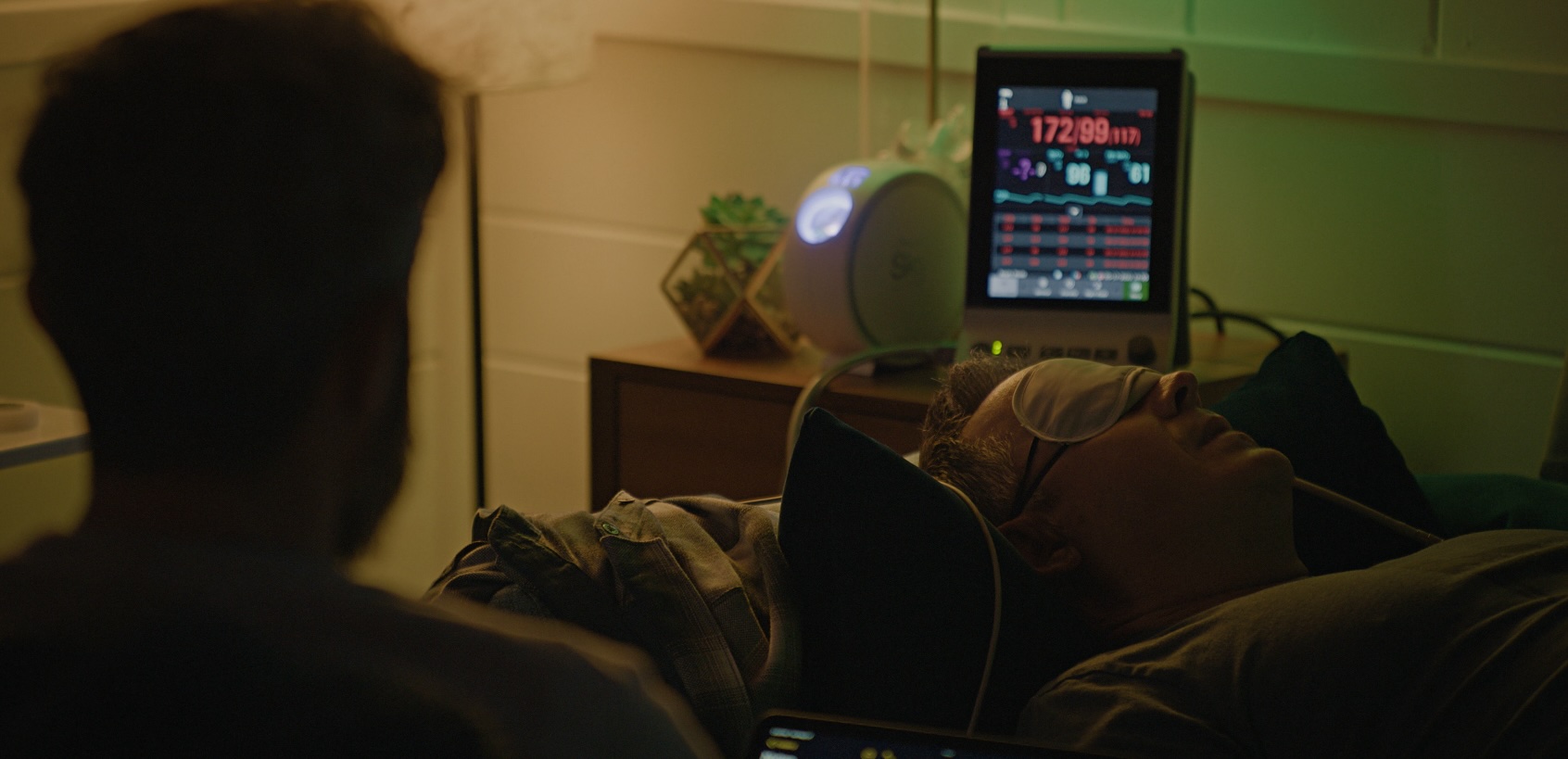- Shorts Weekly
- Posts
- Let Me In, Get Me Out
Let Me In, Get Me Out
Events are Filling up the Calendar, Weekly Picks, and Impressions from an AI Festival
With the weather heating up, in-person film events are too, as this week was a busy one for me. I made it out to The Lower East Side Fest alongside Chelsea, attended an alum’s private premiere downtown, and scoped out the scene at the 2nd Runway AI Film Fest. More on those further down, but the Short of the Week crew will continue to be present at several upcoming fests listed below and we look forward to meeting some of you. Also, FYI our team members make great jurors, panelists, and speakers… ;-)
Céline will be at Cannes for its entire run of 14th to the 25th. If you want to pin her down, attend the Short Film Corner’s Breakfast session on May 22nd.
Chelsea is heading to Seattle to jury for the 50th edition of SIFF. She promises to pull our reclusive founder, Andy Allen, out to something.
I’ll be in Brooklyn tomorrow for FilmShop’s Breakthrough Series where I’ll be on a panel with Rooftop Film’s new executive director Adnaan Wasey.
Hope to see you out and about!
📅 This Week on Short of the Week
📅 Upcoming Festival Deadlines
🤖 Impressions from the 2nd AI Film Festival

Last night I trekked to the Lower East Side’s hip Metrograph theater for Runway’s 2nd Annual International AI Festival. Having attended the inaugural event last year, I was keen to see how the craft has evolved, but also to conduct an informal vibes check after what’s been a momentous, but contentious year for the form.
I immediately got the sense that the atmosphere was more subdued than last year, though in fairness it could have been due to the L.A. edition having taken place a week earlier whereas last year the geographical order was flipped. Still, the guest list was a bit less starry and some of the frisson seemed missing due to the loss of novelty. Even that observation can be interpreted as a win though—AI video has firmly arrived and there was no need for big-picture philosophical panel sessions in front of the screening this time out, the audience understood what it was in store for.
Instead, we got a conversation between Runway’s CEO Cristóbal Valenzuela and Tribeca Enterprise CEO Janet Rosenthal, in part to announce the big news that the two organizations have partnered and that there will be a special AI film screening at this year’s Tribeca Festival in June.
Janet is a legend, but I did not get the sense that she understood the tech on a deep level, so much of the conversation was Valenzuela prompting her to comment on how technology has changed filmmaking over the years in order to situate AI tools within the same lineage as things like smartphone cameras and non-linear editing. Tribeca is a good partner for this—the festival has been a pioneer of expanding to new forms, first with its influential move into immersive works, then its incorporation of games and audio formats into the fest. The organization officially dropped “film” from its name recently.
“The AI Film Festival is a tribute to that innate human urge to share stories and to the storytellers who bring them to life.”
To be fair, it’s also a sensible point. The digital transition of the art form was and still is, an enormous disruption to the industry, so there is some irony that the most vociferous critics of AI tools are people who never shot on celluloid. Still, Valenzuela’s nudging was emblematic of a strong emphasis throughout the night on the ineffable nature of creativity and a centering of the human storyteller such as seen in the quote above which, while undoubtedly sincere, could not help but come across as defensive too. Rosenthal, when asked what we needed to do to celebrate AI tools and highlight the creativity possible with them, mentioned a fundamental need to protect copyright. The conversation got awkward for a second and there was no follow-up.
Being an AI Film Festival though we were in a safe space compared to the derisive comment sections of social media posts. Still, implicit arguments against the absent detractors were one of the mainstays of the night. The best to my mind was when Valenzuela posited that the greatest benefit of digital editing was its ability to “fail faster” and to allow quicker creative iteration, and analogized this as AI’s main benefit too—a supplement that supercharged human ideation. Before the screening, they played a video featuring technologist and educator Golan Levin and he expanded upon this idea, talking about what a minor miracle any creative act is and that by making that process easier it gives “permission” or freedom to venture deeper into an idea, out from the center and “toward the periphery”.
The selected films (all viewable here) do make the case for the centrality of the creative agent as well—at least for now. While teasing out processes can be hard, very few of the 10 selections for the main competition were wholly generative.
While none will become S/W selections, this year’s Grand Prix winner (pictured above) is once again a filmmaker from a short film background. Daniel Antebi is well known to us having had his first short accepted to Sundance Ignite as a teenager then playing SXSW in 2020 with a short titled Soft. Most recently he directed the feature God’s Time. His piece, a narrative music video for the artist Rei Brown, was the most interesting and cohesive of the lineup and a deserving winner. I also enjoyed Where Do Grandmas Go When They Get Lost? which, while a bit cheesy and not as impressive visually as some of the other pieces, had the spark of a great premise and avoided some of ponderous philosophizing that weighs down much AI-aided filmmaking at this moment.
While competitors such as OpenAI’s Sora and movement from MidJourney into video promise to provide competition for Runway going forward, the festival, buoyed by big-name sponsors such as NVIDIA, Coca-Cola, and Goldman Sachs, showed the company in confident form. Despite my initial impressions of the evening’s vibe, there is evident pride among the company’s employees—they think they are working on something important, and that the sky is the limit. It certainly does feel that generative-AI video is here to stay, so we’ll see if they are right come next year’s edition.
🔗 10 Things We’re Paying Attention To
Max Joseph is famous to some as the original host of MTV’s Catfish series but, to us at Short of the Week, he is a pioneer of an influential and often-duplicated form of comedic documentary editing. Whichever flavor of Joseph you prefer, he is also a talented filmmaking alum and I was invited to a swanky premiere hosted by Casey Neistat of Joseph’s new project—a multi-episode deep dive into the topic of “happiness”. Joseph is a first-person guide as he tackles the issue from biological, cultural, and psychological angles. I saw the first three eps and they’re very good! While the series would not be out of place on a streamer, Joseph is releasing it the series for free on his YouTube channel. Catching up after the screening I asked him why, and he offered up that he just feels that the most energy, conversation, and impact for work nowadays happens on the free streaming giant.
Speaking of YouTube, our channel has a new Queen! Diagonale just recently passed 50M views, and has now dethroned Stuck as our channel’s most-watched short. Congrats!
Wes Ball rode a hot short to his Hollywood break and now has blockbuster, Kingdom of the Planet of the Apes in theaters. Deadline asked him about his influences.
Also in theaters this week is Gasoline Rainbow the latest from the Ross Bros, who we wrote about back in 2010! Watch the film’s trailer.
The biggest story in short-form video this the week was Apple’s latest spot for the iPad, titled Crush! It was…not received well. Andy pointed out that the concept was shamelessly borrowed, but most were simply offended. Apple has now apologized and pulled ad buys for the film.
Headlines like this one in Indiewire are part of why Apple’s ad fell flat: Art Directors Guild Suspends Training Program: ‘We Cannot in Good Conscience Encourage You to Pursue Our Profession’
However, this thread in r/Filmmakers about how much $$$ people in film make is illuminating and semi-hopeful.
We spotlighted alum Bianca Giaever’s “Free Help” art project in a previous edition of “10 Things” and the project was just profiled in the NyTimes.
Last week we highlighted teenager Wesley Wang selling an adaptation of his short. This week he was a main character on Film Twitter as spurred by a savage Letterboxd review, the discourse raged over the film’s merits and whether a student film, no matter how polished, should be held to a professional level of scrutiny. What do you think?
An Opt-Out to protect your work from AI models? OpenAI details plans for a Media Manager.
Thanks for reading!






